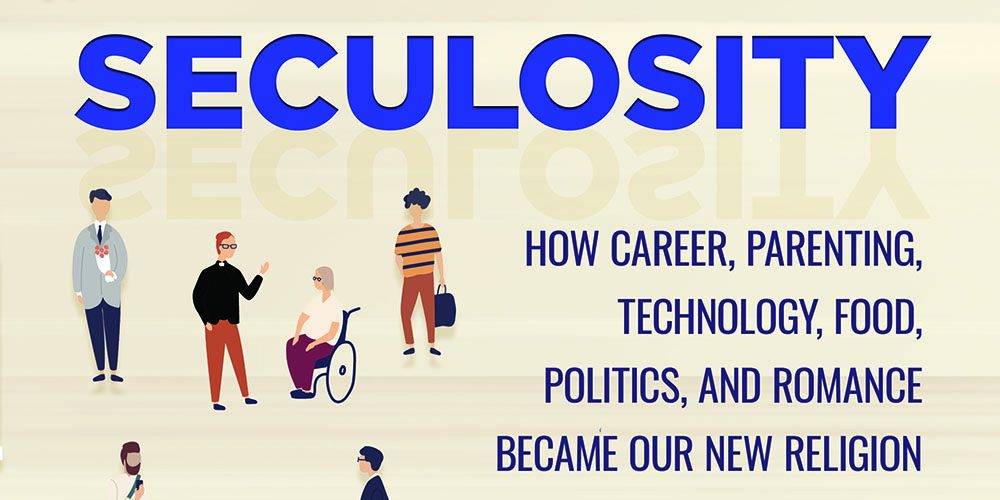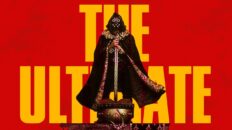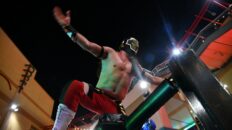The main reason I have an audience on this site and the other sites I write for is due to David Zahl and his website, Mockingbird. They gave my writing a shot a few years ago and provided, at the time, the widest audience for which I had ever written. In many ways, the staff of Mockingbird are another family to me. A family that has informed, not only my writing, but how I live my life and how I receive the setbacks and suffering that life delivers to us all. When I heard that David would be releasing his first book outside of the publishing arm of Mockingbird, I knew it would have the keen insight that informs and lived-in cadence that undergirds his articles.
I did not expect Seculosity. I didn’t not expect it, in that it maintains many of the themes that David has been writing and speaking about for years, but I didn’t expect certain segments to punch me in the gut as brutally as they did. Perhaps I went into reading it with the image of giving a little chuckle, nodding my head in agreement, and then closing the book upon completion to live life as I had before. This is how many religious books leave me. Few blow my mind and even fewer expose the control I attempt to wield over my personal narrative and memory.
Seculosity invites the reader to see the fundamental rituals of everyday life through the prism of religious devotion. One does not have to hold to orthodox Christianity, Judaism, or Islam in order to live life within the liturgies of human passion and illusion and worship. He rightly avoids simply saying that all people are religious, because there is an undertone of condescension involved in that proposition. However, he does show that, while one may not be religious, our human inclinations are such that we approach all sorts of elements of life in a way that strikes an equivalent posture to religious worship. He investigates these parallels by showing the various forms of “performancism” that appear in society, from parenting to politics to simply being busy.
According to the book, ”performancism” is “the assumption, usually unspoken, that there is no distinction between what we do and who we are.” This showcases itself in the various ways we try to control the world, ourselves, and others and at the end of our chain is a recognition that we are not enough according to the standards and expectations others place on us or we place on ourselves. We are seeking salvation and redemption in those spaces and none of those spaces can hold the weight of that burden. By holding on to our illusions of control, we come up short and we are beaten down and shamed by our lack of “enoughness.” So we try harder or switch our salvation project and eventually fall short again. The cycle continues.
The way David weaves through each of these headings is both specific and general. The topics are chosen because he, at some point in his life, has made them one of his salvation projects. Yet as the reader follows his arguments, it becomes clear that these are universals of human existence. Every chapter rendered a version of me that has existed at one point or another—to varying degrees. There will be at least one or two chapters that will burrow under the reader’s skin and jar them awake until they see their very own blood on the page.
When a book has the power to reveal something true about the reader—laying them bare—it has done the work that used to belong to the prophets of old. Those prophets spent their days bringing to light the uncomfortable truth about a people or community that they were too blind to see about themselves. It’s goal was to stir them out of their stupor and give them the motivation to repent and turn away from their follies, their sins. The power of these kinds of books is similar, but perhaps more existential rather visceral. Books like Seculosity reveal to the reader that we’ve spent our lives justifying ourselves to God, to man, to the powers that be, etc., even though we do not have the power in ourselves to give these justifications reality, give them flesh.
Let me get personal for a bit to illustrate how David’s words culled my self-justification by showing it to me on the page. The chapter that punched me in the gut was the chapter on “The Seculosity of Politics.” I grew up listening to Rush Limbaugh, Sean Hannity, Laura Ingraham, and other conservative talk radio pundits. My whole family voted Republican and so I was raised in that tribe. I justified myself according to the civic religion of my family. It’s what I knew and who was I to question its veracity? Long story short, I went to college then graduate school—both majoring in history—and had ample experiences with people nothing like me from varying cultures, races, creeds, and convictions. It took a while, but my political convictions began to veer towards the middle of the spectrum. I consider myself moderate with some left leanings now and I take pride in my “fence-rider” status. I find myself on Twitter occasionally ranting about various political topics that I find maddening, needing nuance, or joining the chorus of social media outrage. And damn if it doesn’t feel good sometimes to get that out of my body.
Yet, a line in the chapter on politics stopped me in my tracks, it states:
“Indeed, when we get religious about politics in the ways I am describing it has a way of actually undermining the significance of the issues themselves—we come to care about a thing less for itself and more because of how it makes us feel and how it affects our belonging in a given political tribe.”
I have felt that rush of acceptance before on Twitter. I love it. I love when people agree with me. When the likes start rolling in and the retweets expand my audience. It gets my endorphins raging and there is a justification of my rightness or my cleverness or my choice of political take. I am one with Twitter. Or so I think. But there are many accounts on Twitter and my universe on the site is a mere tick mark on the pie chart of accounts. There is probably a significant piece of that pie that would block me, argue with me, or call me a cuck.
(Do you notice I have yet to talk about how my tweets have actually furthered the issues that I supposed hold so dear? This is the problem).
I read this chapter and I found myself in the ambiguous milieu of motivations. I do care about the issues of race. I do care about life from birth to death. All these things I care about, but my front on those issues is all justification so that my personally curated tribe will reflect my justification back at me. Because in my heart of hearts, that’s actually what I crave when I talk about politics online. It doesn’t minimize my actual convictions about those issues, but it does show me—and everyone reading this or my followers on Twitter—that I have started to find salvation, “enoughness,” in the democratization of the internet. Find your tribe and the likes will come. If nothing else, social media has shown us that the old saying is true, words without actions are rendered false.
This was just one stream of thought that I encountered in this chapter and in this book as a whole. The very next chapter is on Christianity, the religious space that both David and I live. Many of you who are not Christian might be thinking that this is the bait and switch, that this is where he “proves” that Christianity solves all of these problems. However, this is not the case. He applies the same argument, the same logic to the church in America. If anything, it’s probably worse within the walls of the church, a place that should be known for “grace upon grace.” Yet the human impulse continues to find self-justification even in the spaces where our self-justification has been torn from the body of the crucified Savior and drenched in His blood. We believe that we have no need for these salvation projects, these self-justification schemes, because someone outside us took care of it for us. This, however, is not often the operating procedure in many a church in this country.
David does not make a presumption to solve your lack of “enoughness,” but he attempts to make you aware of it and to inquire of it. What is really at the bottom of these actions? The good of others? Charity? Accuracy? Or is it, like me, about being right, being enough, being affirmed? By the end of the book, one should realize that the best way to live life is to recognize one’s need for control of their own story and, instead, rest in a grace that permeates every atom of this world.








